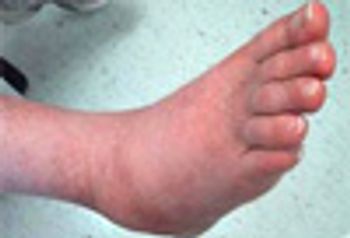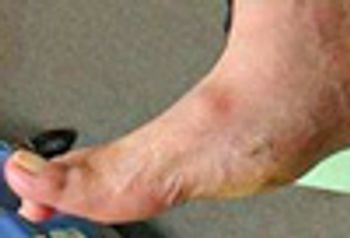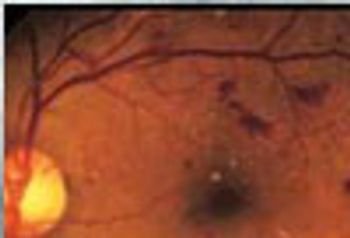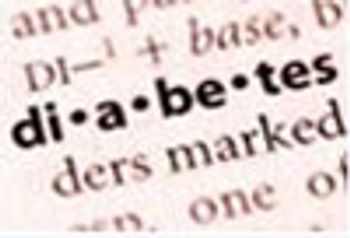
Mucormycosis, an angioinvasive yeast infection of the Mucorales order of the class of Zygomycetes, often grows in patients with diabetes mellitus, especially in the presence of diabetic ketoacidosis.

Mucormycosis, an angioinvasive yeast infection of the Mucorales order of the class of Zygomycetes, often grows in patients with diabetes mellitus, especially in the presence of diabetic ketoacidosis.

Recommendations consider the whole patient, the spectrum of risks and complications for the patient, and evidence-based approaches to treatment.

A call for intensified efforts to prevent and control hypertension is the theme of World Health Day 2013, observed this month to focus attention on reducing heart attacks and strokes.

More than 90% of patients with diabetes mellitus receive their care from primary care physicians. This compact slide show provides visual presentations of a range of DM-related problems.

Diabetic myonecrosis; Persistent bacterial bronchitis; basal cell carcinoma; statin-drug pleiotropy; spinal epidural abscess

FDA investigating pancreatitis risk associated with incretin mimetics including GLP-1 agonists and DPP-4 inhibitors.

High-potency statin therapy may increase risk of new onset diabetes but also reduces cardiovascular events.

Hypoglycemia in type 2 diabetes patients can be the result of insulin or sulfonylureas.

Goals for HbA1C, blood pressure, and LDL-C among diabetes patients are being met by more, according to the NIH.

The primary goal of treatment is to minimize the progression of foot deformity by achieving and maintaining structural stability of the foot and ankle.

A fourth dipetidyl peptidase-4 inhibitor is approved as monotherapy and in combinations with metformin and pioglitazone.

The follow-up risk of death or an ischemic cardiovascular event that requires hospitalization is about 10-fold higher than the risk of hospitalization for major bleeding.

This enigmatic, destructive, and deforming condition most often affects persons who have diabetes.

The safety profile correlates with lower observed risk of stent thrombosis, according to an analysis of insights from a nationwide coronary intervention registry.

Here: a battle plan to address obesity-the root problem of our current epidemic of metabolic syndrome, hypertension, and diabetes mellitus-that involves kicking a sedentary lifestyle.

Diabetes-related complications include retinopathy, neuropathy, ulcerations.

Reducing hyperglycemia in older patients with chronic kidney disease may be best accomplished using incretin-based agents.

Short-term sleep deprivation reduces insulin sensitivity in peripheral tissue, including fat cells, possibly leading to type 2 diabetes mellitus or obesity.

What is known about diabetes mellitus in older adults, how DM affects them differently than younger adults, what can be done to prevent or manage the disease, and how best to fill critical gaps in the evidence to address older patients’ needs.

High to middle levels of physical activity are associated with a lower risk of mortality in patients who have diabetes mellitus, according to a recent study.

More than half of adults 65 years and older have at least 3 chronic conditions, such as heart disease, diabetes mellitus, arthritis, high blood pressure, and Alzheimer disease, according to the American Geriatrics Society.

Persistent hyperglycemia despite triple oral antidiabetic therapy requires reassessment of medications with particular attention to risks for weight gain and hypoglycemia.

Hyperglycemia uncontrolled by oral antidiabetes agents alone can be complicated by drug-induced weight gain. GLP-1 agonists and DPP-4 inhibitors offer alternatives.

The addition of basal insulin to current oral medication is the simplest way to initiate insulin therapy in patients with type 2 diabetes.

Hypertension is very common in people with diabetes; in this patient’s case, it may have been present for 5 to 10 years before the hyperglycemia appeared.